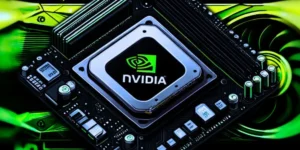Quantum computing has long fascinated scientific circles but is no longer confined to theoretical labs or research institutions. With tech giants investing heavily in quantum development, the question arises: How will quantum computing impact consumer hardware in the future? While we’re still in the early stages, the groundwork is being laid for a transformation that could redefine everyday computing.
Quantum vs. Classical Computing
Classical computers, which we use daily, operate using bits, ones, and zeros. Quantum computers, on the other hand, use qubits, which can exist in multiple states at once thanks to superposition and entanglement. This allows quantum machines to process exponentially more data at once compared to traditional systems, making them ideal for complex problem-solving.
Not Quite Consumer-Ready Yet
Quantum computers are not ready for consumer desktops or laptops despite the hype. They require highly controlled environments and are primarily used for molecular modeling or cryptography research. However, this doesn’t mean consumer hardware won’t benefit from quantum advancements. We’re already seeing the influence in areas like quantum-inspired algorithms and encryption methods, which can improve performance and security in conventional devices.
Quantum’s Influence on Consumer Tech
One area where quantum computing is beginning to make waves is in cloud-based computing services. Companies like IBM and Google offer quantum computing resources that developers can access remotely, allowing for hybrid systems where consumer hardware interacts with quantum systems via the cloud. This could lead to faster data analysis, more intelligent AI, and better optimization tools, even on standard devices.
Preparing for a Quantum-Enhanced Future
The real benefit for consumers might lie in how quantum computing redefines software design and problem-solving approaches. Hardware may eventually evolve to support quantum-accelerated tasks or integrate new forms of quantum-inspired processors. In the meantime, forward-thinking developers and hardware manufacturers are already laying the foundation for being “quantum-ready.”
Conclusion
Quantum computing isn’t going to replace your laptop anytime soon, but it’s far from irrelevant to the future of consumer hardware. Its indirect influence is already shaping how we build, secure, and optimize technology. As breakthroughs continue, expect quantum computing to gradually shift from a distant curiosity to a subtle yet powerful force behind our daily tech.










